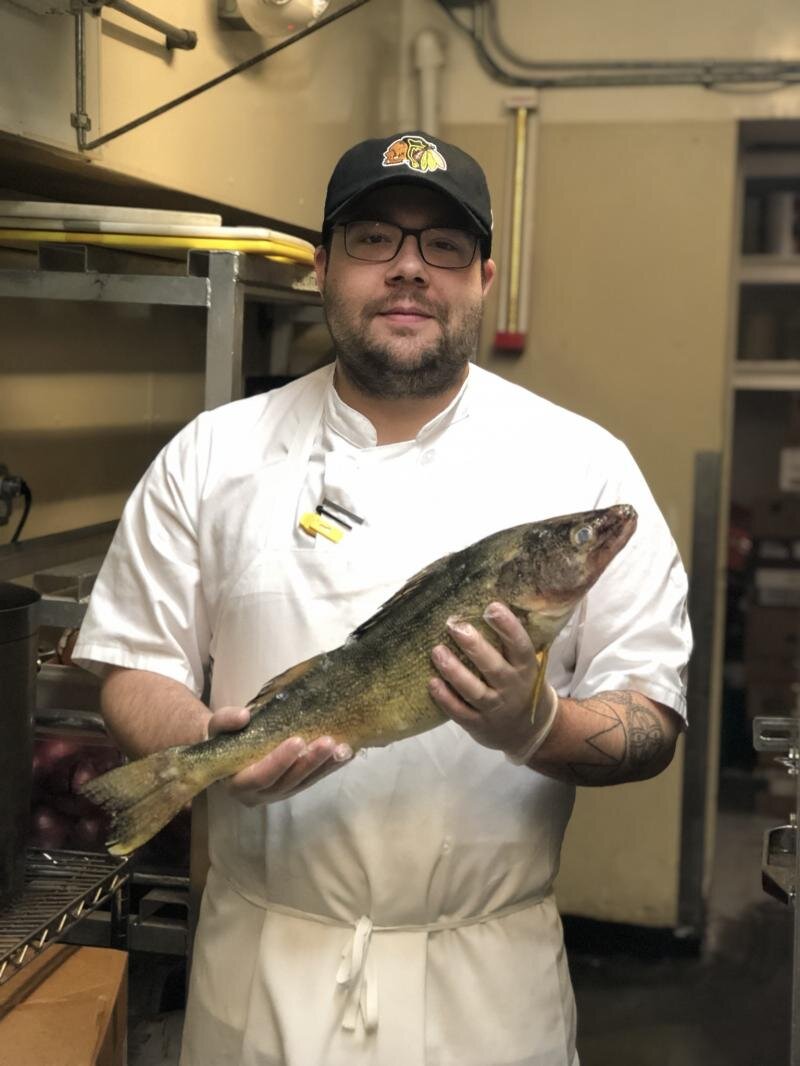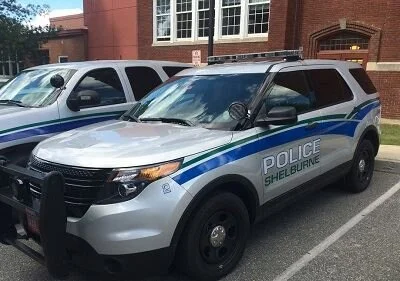Vermont Wild Kitchen to host Abenaki Chef Jessee Lawyer
Jessee Lawyer. Photo courtesy of Vermont Abenaki Artists Association.
Rooted in Vermont and the Vermont Fish and Wildlife Department (VFW) have joined together to host online cooking events with chefs from around the state of Vermont to promote local and wild food and cooking. The latest guest on the Vermont Wild Kitchen show is Abenaki chef Jessee Lawyer, a longtime cook and advocate of exploring Indigenous foods.
The Vermont Wild Kitchen is hosting a Facebook Live event on March 18, 2021, at 5 p.m. featuring Abenaki Chef Jessee Lawyer, according to a (VFW).
Lawyer, the executive chef at Sweetwaters American Bistro, will prepare a meal of venison shanks, saffron grits, and fiddlehead gremolata for the audience. Lawyer is the first guest to prepare all the dishes himself and is also the first professional chef and indigenous guest Vermont Wild Kitchen has hosted.
“What I really hope to get out of my cooking is excitement within the [Indigenous] community to create with food,” said Lawyer. “I try to take whatever wild game I'm using, or cultivars or forged goods, and make those center of the plate, and really just highlight those and then use whatever flavors and ingredients that I want to kind of bring it all together.
“You can create something spectacular on the plate, [that is] delicious, nutritious,” said Lawyer.
The Vermont Wild Kitchen started in April 2020 and is run in conjunction with Vermont Farm to Plate and the VFW.
Shane Rogers, the Farm to Plate Communications Manager, said the hope is that this event will help people celebrate “all people who are living in Vermont [that] are doing local food in their own ways.”
“Vermont Wild Kitchen is here to be a platform to really kind of show off the diversity of people and the diversity of food that's here in Vermont and kind of get out of that lane of just thinking about like $15 hamburgers and $10 beers, because Vermont food is so much more than that,” said Rogers.
Vermont Wild Kitchen started off as “Learn to Cook Clinics” hosted by Vermont Farm to Plate and the VFW in 2019.
“We got some really diverse communities and folks coming in to learn about how to prepare wild food,” said Nicole Meier, the Hunter Education Program Coordinator for the VFW.
“We started working with Rooted in Vermont about four or five years ago,” said Meier. The partnership started by trying to make Vermonters aware that locally-hunted meat or locally-caught fish is part of the local food scene as well as vegetables or fruits.
Before creating Vermont Wild Kitchen, Vermont Farm to Plate and the Fish and Wildlife Department worked together on “Learn to Cook Clinics” that brought hunters, anglers, or foragers together to create dishes and share information.
“People are seeing enthusiasm in wild food and in local food, and they're seeing them in their own kitchens,” said Rogers. “They're just seeing how accessible many of these ingredients actually can be for their own use. And our hope is encouraging [people] to go out and explore different food ways for themselves.”
Rooted in Vermont is a project of the Vermont Farm to Plate network, where the goal is to make local food more accessible for everyone in the state. The project celebrates how “everybody does local in their own unique ways,” said Rogers.
“We really wanted to be celebrating how all people who are living in Vermont are doing local food in their own ways. And we couldn't be doing that without also celebrating Abenaki food ways and really working to talk about Abenaki food sovereignty as well,” said Rogers.
“So many people are tuning in from so many different places,” said Meier, the Hunter Education Program Coordinator for the VFW.
Vermont Wild Kitchen is more accessible than the Learn to Cook Clinics because it is online and participation is much higher because of the better accessibility, with some people even tuning in from other states, Meier said.
Moving online was a challenge for the Vermont Wild Kitchen events. “We just had no idea how it was going to go,” said Meier, but they managed the transition and have hosted 10 events since April 2020.
“We have the other participants that are actually able to share their recipes with the other folks who are watching which is something that you don't get on a regular cooking show.
“I'm really proud to be part of this effort to diversify the world of wild local food, especially considering that Indigenous people have been doing local food from day one,” said Meier.
Rogers is thrilled that the collaboration between VFW and Rooted in Vermont continues despite the pandemic.
“We really created Rooted in Vermont for the goal in mind of reaching folks who have been doing local food for their whole entire lives, but not necessarily resonating with that local food movement,” said Rogers.
Rogers hopes that this event will help Vermonters “celebrate Abenaki foodways.”
“We’re very excited to have [Jessee Lawyer], but also it’s a great opportunity to really recognize that there is this history here that is often not talked about,” said Rogers. “Indigenous folks were here way longer than the settlers and we have to kind of recognize this horrific relationship and really work on repairing that.”
Rogers said this platform must let Indigenous folks lead and “allow those voices to be heard.”
“What we’re hoping to accomplish with [this] Vermont Wild Kitchen is to showcase this awesome chef,” he said.
Lawyer is excited about this opportunity and presenting Indigenous dishes to a wide audience. “You know, we are still here, we’re still living, breathing culture,” he said.
Vermont Wild Kitchen hosts Facebook Live cooking events with Vermont amateur and professional chefs every third Thursday of the month. The next will be on March 18, 2021, with Abenaki Chef Jessie Lawyer.








